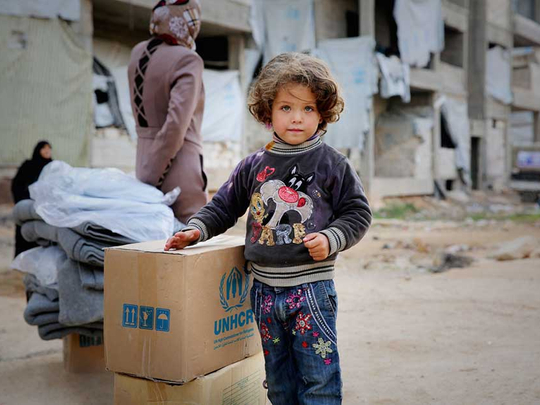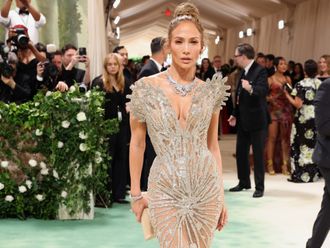
Dubai: One-hundred Syrian refugee families living in Egypt have been given Dh550,000 in grants from a UAE charity.
The Big Heart Foundation’s 12-month cash assistance programme targets 100 families, making up a total of 400 people.
The money is to help the refugee families pay for rent, food, and clothing, education, and health care.
“We are striving to help these families with unconditional cash grants in order to ease their suffering,” Big Heart official Mariam Al Hammadi said in a statement released on Tuesday.
The money will be handed out by the United Nations’ refugee agency and local Egyptian partners. The agency estimates around 117,000 refugees — over 40,000 households — currently live in Egypt. Last year, it said 90 per cent live in poverty.
In total, more than 4.8 million Syrians have fled their homeland since the Syrian war broke out in 2011, the UN estimates.
“The Egyptian authorities have been doing their utmost to help Syrian refugees, but the situation is becoming increasingly worse for many displaced families,” Hammadi said.
Vulnerable
“We must all do what we can to help these vulnerable people who are living in terrible conditions through no fault of their own,” she added.
The Big Heart Foundation was launched in 2013 by Shaikha Jawaher Bint Mohammad Al Qasimi, wife of His Highness Dr Shaikh Sultan Bin Mohammad Al Qasimi, Supreme Council Member and Ruler of Sharjah, and Chairperson of the Supreme Council for Family Affairs. The charity provides life-saving medical services to more than 365,000 displaced Syrians, and 400,000 others.
People who have received help from the foundation include the Rohingya ethic group in Indonesia and Palestinian refugees in Arab countries.
In February, the charity donated Dh1.28 million towards two UN projects to help Syrian refugees in Lebanon and Iraq survive the tough winter conditions.
On the latest giving programme, foundation official Al Hammadi said that the “overall effect” was “one of restoring the dignity and improving the psychosocial well-being of the recipients”.











